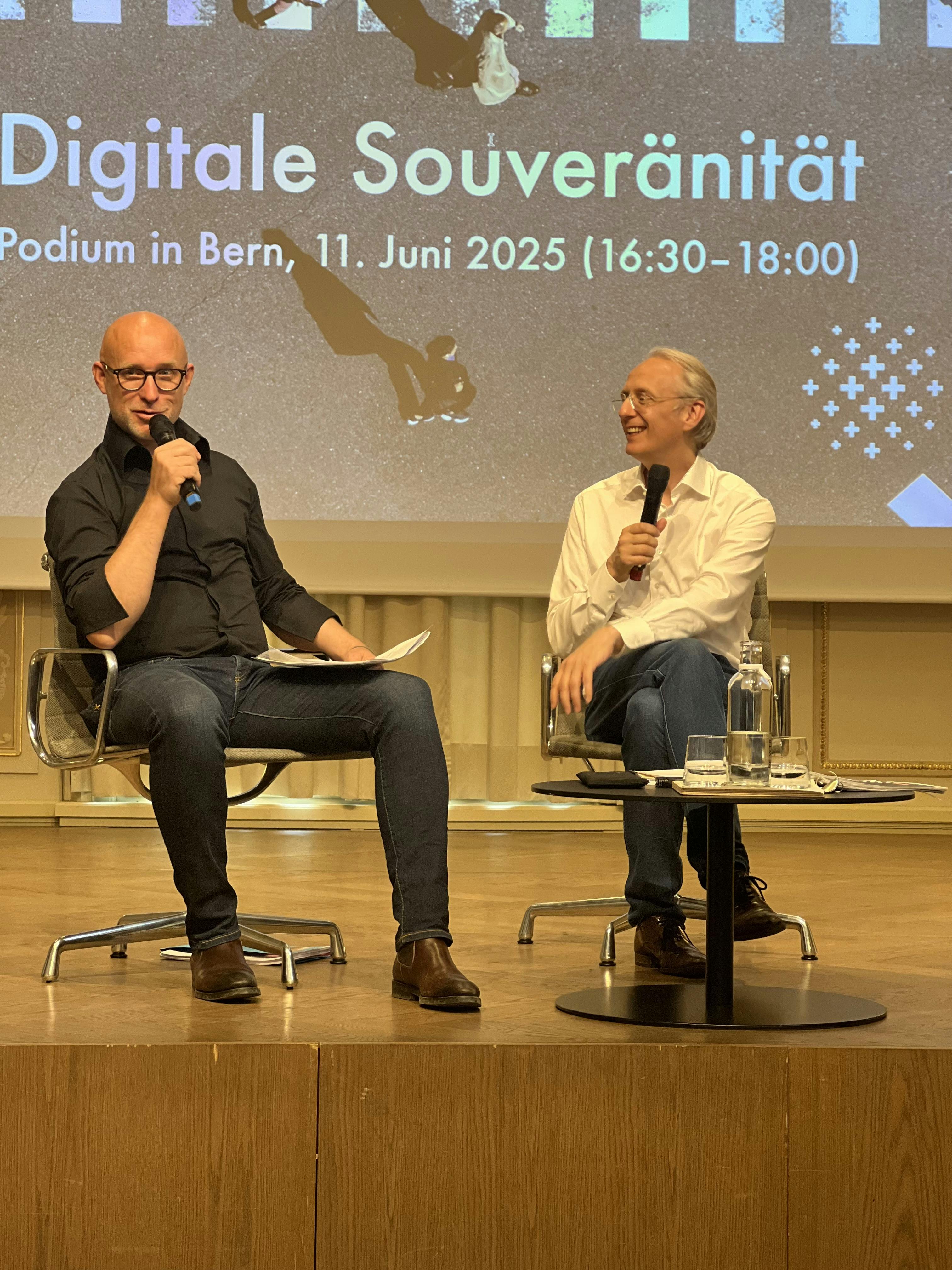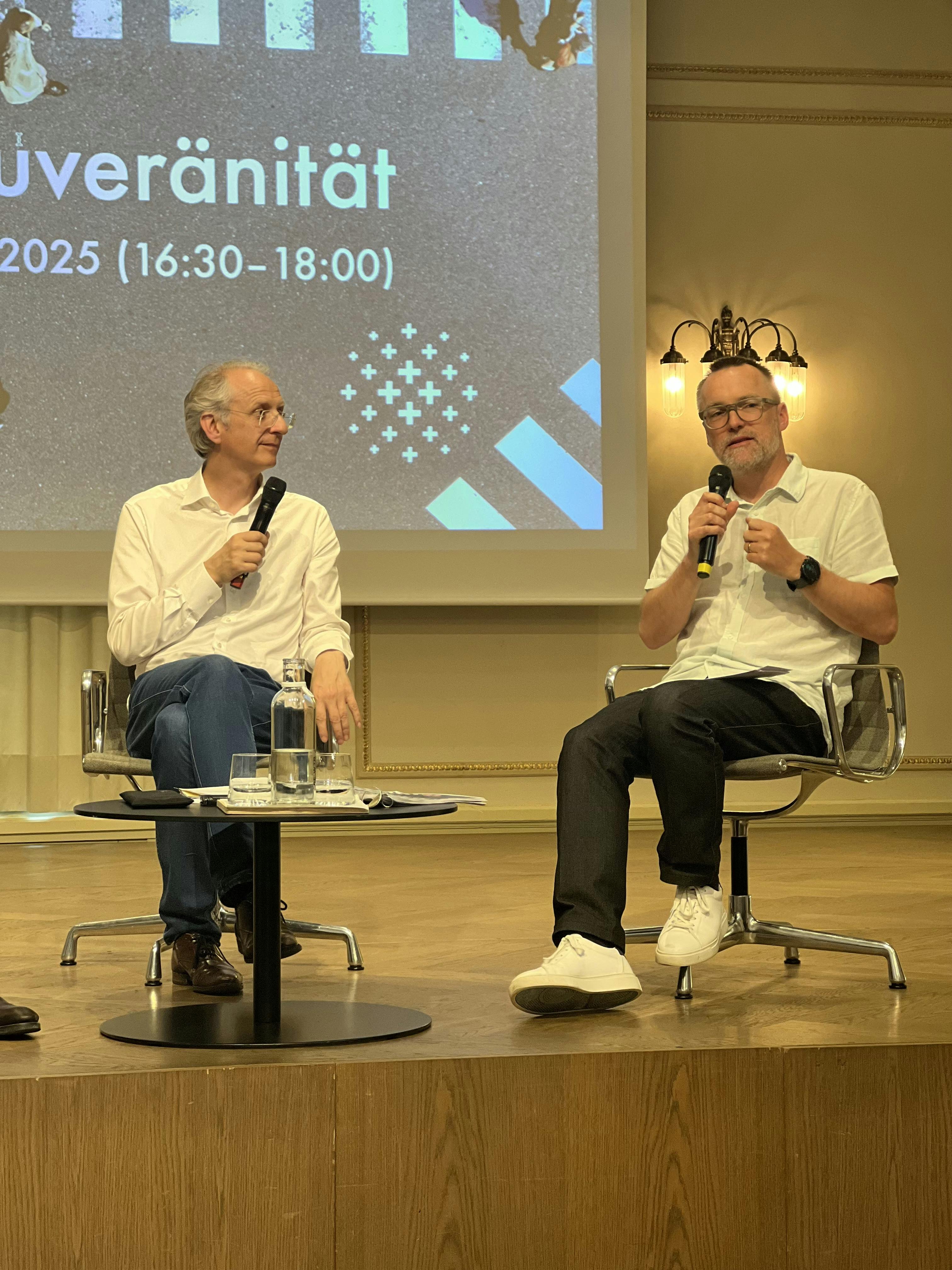On 11 June 2025, a panel organized by the Swiss Data Alliance on digital sovereignty took place at Casino Bern, moderated by Marc Steiner, Judge at the Swiss Federal Administrative Court. The discussion brought together Christian Laux, lawyer and Vice-President of the Swiss Data Alliance, and Matthias Stürmer, Professor at the Bern University of Applied Sciences and Head of the Institute for Public Sector Transformation. The timing of the event could hardly have been more relevant: as Switzerland deepens its reliance on foreign cloud providers, the notion of “digital sovereignty” is gaining visibility, but not necessarily clarity. What is actually meant by sovereignty in the digital age?
“We must resist the urge to make digital sovereignty a catch-all term. It should guide state capacity, not dominate technical decisions”* said Christian Laux, Vice President at SDA.
The discussion revealed two distinct yet complementary views on how to achieve greater digital sovereignty. Matthias Stürmer emphasized that Open Source Software (OOS) is not just a technical choice but a strategic necessity to reduce Europe’s overreliance on US tech platforms. “Strengthening local capacities, especially through open source, is a strategic imperative,” he argued, calling for more proactive public investment and a shift in mindset regarding state-led IT infrastructure.
In contrast, Christian Laux took a more pragmatic approach, warning against the illusion of full independence. He stressed that sovereignty is not about eliminating all dependencies but about managing them wisely. “Reducing one dependency usually leads to another. Sovereignty is not about cutting ties, but about building resilient, controllable systems,” he noted. For Laux, the path forward lies in robust governance, legal precision, and realistic use cases—not idealistic slogans.
One of the key distinctions must be made between “digital sovereignty” and “everyday digital management”. In most scenarios, decisions about software procurement, cloud usage or data storage fall under the responsibility of individual agencies or institutions. The state's role, then, is not to control all decisions centrally but to act when systemic risks arise or when the state has assumed a constitutional guarantee obligation.
Beyond infrastructures and providers, the panel emphasized the importance of human governance. Questions about the role of AI in sensitive domains, such as courts or healthcare, highlighted this concern. Marc Steiner insisted that technological systems must remain under human control, especially when fundamental rights are at stake.
“Let’s not forget: what we also want is legal protection. If we only value the rule of law when we like the people, then we have not understood the reasoning behind the rule of law.” says Marc Steiner, Judge at the Swiss Administrative Court.
*translated from German by the author




